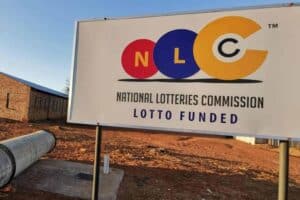While some criticised government's hard lockdown which was implemented in March, saying it was introduced too early, the President said the early lockdown slowed down the death rate, while also helping government prepare for the worst.

In his second virtual imbizo, President Cyril Ramaphosa has highlighted the effects of coronavirus on the economy, including the fact that at least three million people have lost their jobs.
As a result, government is coming up with an economic recovery plan that will “leave no one behind”.
“There will be more focus on spaza shops and there is a loan scheme to help businesses,” he said in response to questions from the public.
“There is a massive job creation process being worked on.
“We will also focus on the rural economy, especially commercial viability of various enterprises in the area. Agriculture and agro-processing are also the focus our plan. We will bring black people into the commercial side of agriculture because it has a great potential to create jobs. We want our people to get involved in various activities of the agriculture sector,” said Ramaphosa.
ALSO READ: Ndabeni-Abrahams in hot water again, this time with parly
Why the hard lockdown:
While some criticised government’s hard lockdown which was implemented in March, saying it was introduced too early, the President said the early lockdown slowed down the death rate, while also helping government prepare for the worst.
“We realised that infections at the beginning were doubling at a much quicker rate and we looked at other countries and decided to lock down the country to avoid what was happening in other countries. Compared to the UK that delayed a hard lockdown, our rates were flattened and we realised we were not ready to accommodate the cases. We have benefitted in that the death rate is also much lower than other countries. By imposing a lockdown, we’re able to slow down the rate,” he said.
Speaking to earlier statements of specific areas and provinces going into different lockdown levels, he said the whole country had now become a hotspot, including areas that were never expected to record high cases.
“We then decided to have a broad response and look at the country as a whole. Numbers are now doubling in hotspots. In other provinces it is much slower, but there is a rise,” Ramaphosa said.
On ban on sale of alcohol and tobacco products:
Ramaphosa said the suspension of alcohol sales was one of the “difficult” decisions government had to make, further reiterating that what citizens were experiencing was a “suspension” of sales, not a ban.
“We’ve dealt with the issue of tobacco and is not an easy one. It is not a ban but a suspension and will be resolved when we move to different alert levels,” said Ramaphosa.
Watch the full imbizo below:
Also read: Mkhize releases WC study showing increased trauma cases after alcohol ban lifted
School infection rates:
Ramaphosa further addressed the call by Sadtu to close schools until the country reaches its Covid-19 peak, and said Basic Education Minister Angie Motshekga was in meetings with key role players discussing the reopening of schools and the resulting reported infections.
“When we looked at reopening schools, we listened to all key role players. They said schools should be opened and focus on those classes that will open up spaces – grade 7 because they go to high school and grade 12 because they either go to university or job spaces.
“We are engaging with them and and listening to teacher unions, parents, student organisations and all key role players,” he said.
Also read: Sadtu, education dept in standoff over schools
Ramaphosa said though the country had banned gatherings of more than 50 people, the school environment was not seen as such.
“When we looked at the opening of the schools we did not see the school as a gathering and there is social distancing. I’ve seen schools taking care of protocol that have been put in place. A number of teachers and learners have become infected. We’re not the only country that has opened. The education minister is discussing the matter. We’re going to come up with a way. The school environment is not a gathering…
“Every life is important to us, we don’t focus on how many people should die first before we sacrifice the academic year. We do not take that approach. We are about saving lives and preserving livelihoods,” he said.
Why riding in taxis is allowed and not visiting family
Though some South Africans have bemoaned government’s decision to ban family visits, while also allowing taxi rides – short and long distance – Ramaphosa said only those who had permits to move around were allowed to ride in taxis, while casual gatherings spread the virus faster.
Also read: Medical experts slam govt for banning booze but loading taxis
“Casual visits are what spreads the virus and we want to limit those. We said taxis must take great precaution including sanitisation, ventilation and wearing of masks. They have their own requirements and responsibilities. It’s not yet free for all.
“Covid-19 is an invisible enemy. All of us must get involved and take every step.
“It is an imposition position on our rights and when we’re in a war, our rights are restricted because it affects everyone. It is done for our own survival, we must survive. We will not have all the rights we’ve had. It’s for our own protection,” said Ramaphosa.
For more news your way, download The Citizen’s app for iOS and Android.






